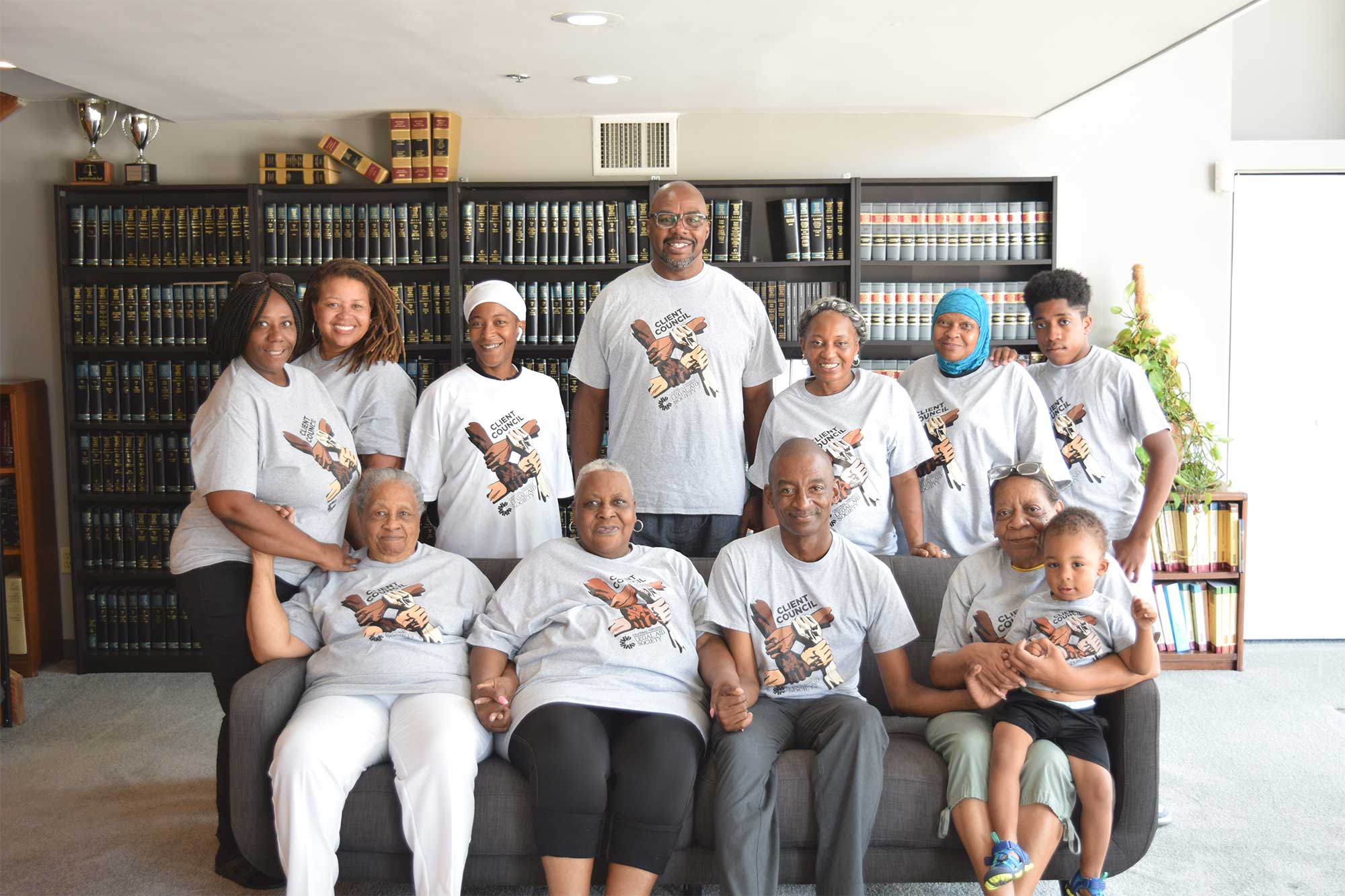We go where people gather, attending county fairs and community festivals, visiting community centers and libraries, and appearing at churches, schools and other facilities. We reach thousands each year through our talks, training sessions and leave-behind brochures.
We use the media to educate the community and to highlight our services. Our staff is often featured in news articles and programming; in addition to local media, CVLAS attorneys have been featured or quoted in The New York Times, on local radio programs, and on the steps of and the John Marshall Courthouse in Richmond, Virginia.
CVLAS reaches out to migrants through its Virginia Farmworkers Program, visiting camps and participating in church-organized fiestas when workers are off duty. We reach over 4,000 migrants annually through this program.
The Central Virginia Client Council, an organization sponsored by legal aid and made up of folks who could be eligible clients, meets regularly and engages in outreach to the client community. Our domestic violence unit provides information to and seeks referrals from other agencies providing services to victims of this common form of abuse.

Our client was sued by a major credit card company for a credit card debt in General District Court. The client paid the entire balance after the Warrant in Debt was filed. The major credit card company refused to dismiss the case. Our consumer attorney contacted the credit card company’s attorney who refused to acknowledge payment even though it had already been over 2 weeks since our client made the online payment. The CVLAS attorney followed up by stating that he was entering an appearance and planned on setting it for trial. Our attorney quickly received a confirmation of payment and a dismissal of the case.
CVLAS helped an elderly widow keep her home, and her family of four housed, when the city threatened to foreclose on the house due to back owed taxes. The attorney used the Virginia Mortgage Relief Program and negotiated with the city attorney to stop the foreclosure sale. The attorney also helped her obtain elderly tax relief in the amount of $1,536 per year, which will help her be able to stay in her home.
A grandmother obtained full custody of her two grandchildren when the parents were unable to care for them. The grandchildren are both profoundly disabled, and the grandmother is a retired nurse. She had the medical training to provide care, but caring for them was a financial burden for her. The grandmother requested SNAP (food stamps) but was denied because the mother continued to receive benefits for the children who were no longer in her care. The MLP (Medical Legal Partnership) attorney negotiated with the Department of Social Services to help the grandmother obtain benefits. She was approved for $740 per month.
A 67-year-old man living in a rural county reached out to CVLAS as he and his wife had been sued for $70,365.10 in medical debt in relation to emergency medical care he received when he was uninsured and rushed to the nearest hospital. When he arrived at the hospital, his wife was forced to sign documents saying she and her husband would be responsible for all treatment costs before her husband could be treated. Unfortunately, the hospital he was brought to by the emergency crew was a for profit hospital that had a limited charity care program and the hospital told him he did not qualify for despite his low income. This client was destressed by the lawsuit and worried he would have to file bankruptcy. A CVLAS attorney identified a defect in the hospital’s lawsuit and filed a motion to dismiss. The court granted the motion, and the lawsuit was dismissed with prejudice, which means the client and his wife avoided a judgment of $70,365.10 and didn’t need to file for bankruptcy.
An attorney on our housing team recently represented a tenant whose rental house was condemned by the City. Although the tenant was current on her rent, the landlord had not properly maintained the electrical and plumbing systems at the property. In January, a city inspector told the tenant she had to vacate the property immediately because the home was dangerous and not safe for habitation. The tenant attempted to resolve the matter with the landlord and have the landlord provide alternate housing while repairs were being completed. The landlord refused to provide alternate housing, refused to make repairs, refused to terminate the lease, and refused to return the client’s $1,000 security deposit. The tenant contacted CVLAS for help. We obtained a court order that the landlord pay $6,000 damages to the tenant, and immediately return the tenant’s last month’s rent and the security deposit. The lease was terminated, and the tenant was able to seek better housing.
The staff members of Central Virginia Legal Aid Society are often featured in media stories
highlighting our work and the legal challenges facing our clients. These are a selection of stories featuring CVLAS.